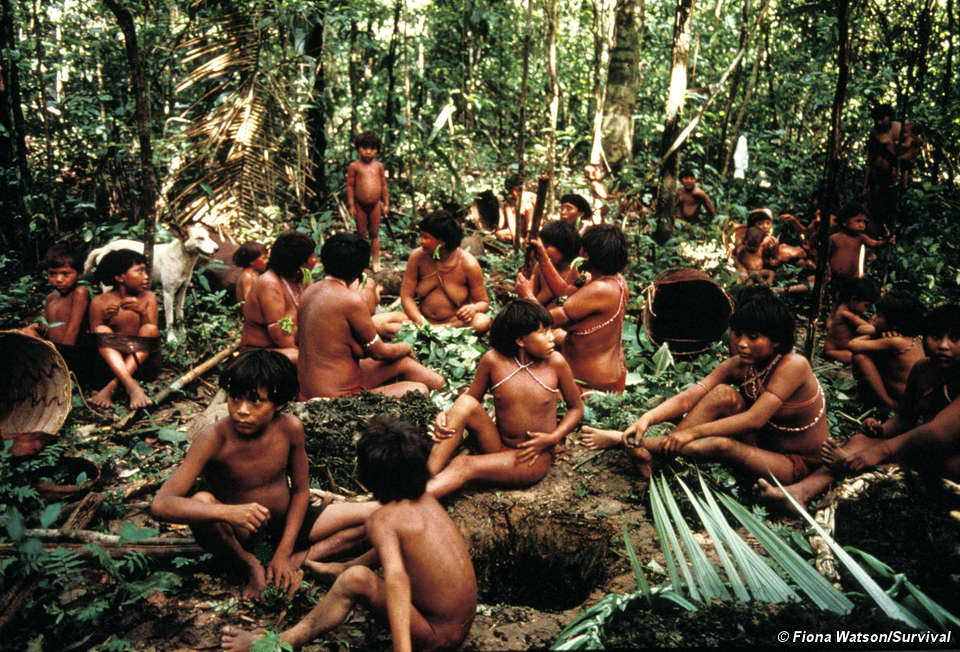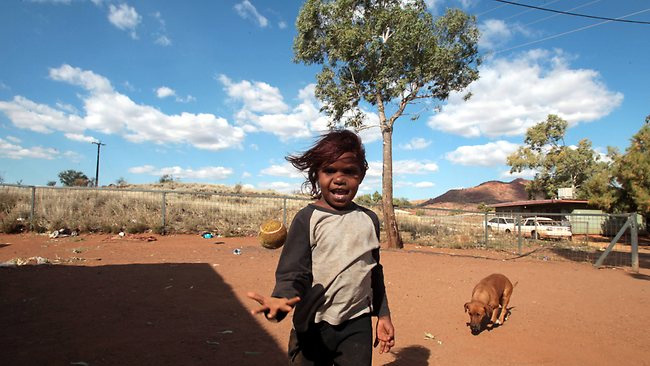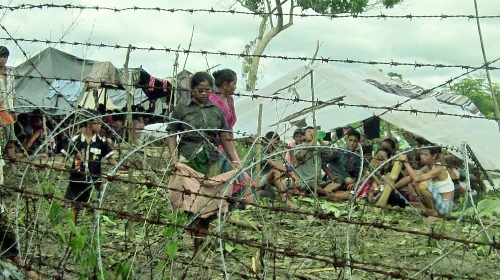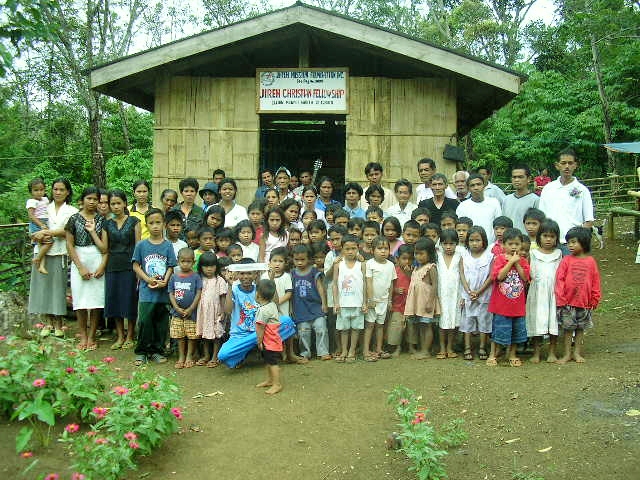South America: IACHR Calls On Member States To Guarantee Respect For The Human Rights Of Indigenous Peoples In Voluntary Isolation And Initial Contact
On occasion of the International Day of the World’s Indigenous Peoples,[ August 9], the Inter-American Commission on Human Rights (IACHR) urges Member States to guarantee full respect for the human rights of indigenous peoples in voluntary isolation and initial contact in the Americas because they are in a situation of high vulnerability. The lack of protection of their human rights entails a grave risk to their life and physical, cultural and spiritual integrity.
Indigenous peoples in voluntary isolation and initial contact in the Americas inhabit regions of the Amazonian jungle and the Gran Chaco in Bolivia, Brazil, Colombia, Ecuador, Paraguay, Peru and Venezuela. Their territories are often zones in which legal and illegal extraction activities take place in search of natural resources, primarily wood, hydrocarbons and minerals, as well as commercial agriculture and cattle raising in some countries. These activities in general constitute a threat to the life and integrity of these peoples, since they can lead to contact and all the consequence it entails for their health and physical and cultural survival. Since peoples in voluntary isolation do not have immunological defenses against common illnesses, contact can cause not only the loss of their worldview and cultural identity, but also epidemics that may lead to the disappearance of entire peoples. Read more about IACHR’s recommendations concerning indigenous people in voluntary isolation in South America here.…
Australia: Euahlayi Nation Declares Independence And Asserts Pre-Existing And Continuing Statehood
Ghillar, Michael Anderson, Convenor of the Sovereign Union and now Convenor of the Provisional Euahlayi Peoples Executive Council said today:
On 3 August 2013 in Dirranbandi, Queensland, a meeting of key Euahlayi family members and Elders concluded that a letter be forwarded to Her Majesty Queen Elizabeth II, informing her that the People of the Euahlayi have asserted their pre-existing and continuing Statehood.
This decision follows on from previous correspondence with Buckingham Palace. On 24 July 2010 I wrote under my natural and given Euahlayi name, Ghillar, to Her Majesty Queen Elizabeth II asking the following questions:
a) Can you provide us with the documents, where war was declared against the Peoples of the Euahlayi Nation or where b) The Peoples of the Euahlayi voluntarily ceded their sovereignty to Great Britain.
Our most recent correspondence reminds Her Majesty that on 24 August 2010 her Senior Correspondence Officer, Mrs Sonia Bonici, wrote from Buckingham Palace that:
“As a constitutional Sovereign, Her Majesty acts through her personal representative, the Governor-General, on the advice of her Australian Ministers and it is to them that your appeal should be directed.” Read more about the Euahlayi Nation and their assertion of independence here.…
Honduras: International Denunciation Of The Criminalization Of COPINH And The Continual Repression Against Rio Blanco
La Voz de los de Abajo, an international human rights organization that has been accompanying Latin American social movements for more than 14 years, once again denounces before the international community and the Honduran authorities the persistent harassment, repression and criminalization against the indigenous community of Rio Blanco and the indigenous organization with which it is affiliated, the Civil Council of Popular and Indigenous Organizations of Honduras (COPINH). We repudiate with indignation the indictment made against indigenous members of COPINH for their struggle in defense of the Gualcarque River, the community of Río Blanco and the cultural heritage of the Lenca people in the face of the threat from the transnational hydroelectric project Agua Zarca. This legal action is even more cynical because it comes a week after the people who should be facing legal charges – the soldiers and officials of the Honduran army who are openly collaborating with the companies that want to build the dam – shot down an unarmed indigenous person in cold blood.
In July we had already expressed our worry about a possible bloodbath if the Honduran government didn’t immediately stop the militarization of the area and the collaboration between the military, police, the hydroelectric companies and their private guards. Exactly as we warned, one week later there were two people dead, one of whom was Tomás García, the aforementioned indigenous man who was killed by a soldier from the army during a peaceful protest. We hold the Honduran government responsible for this killing and once again call for an end to these crimes against humanity against the Lenca indigenous people. These acts are yet another reason why we are pressuring the U.S. congress to cut off aide to the Honduran military and police. Read more about the human rights situation in Rio Blanco and military harassment in Honduras here.…
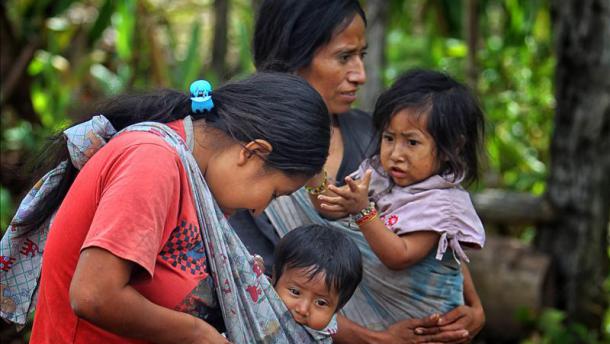
Bangladesh: Around 380 Affected Tripura Villagers Of 4 Villages In Taindong-Matiranga Yet To Return To Their Homes
Following communal tension and fearing attack of Bengali settlers, on 3 August 2013, a total of 380 families of indigenous Tripura community including 59 families from Purabari village, 165 from Headman Para, 140 from Laifu Kumar Karbari Para and 20 families from Krishna Doyal Karbari Para under Taindong union of Matiranga upazila fled into the neighbour Panchari upazila in Khagrachari district. These families took shelter at Prafulla Karbari Para, Nabaratna Karbari Para, Moratila, Rohindra Karbari Para and Subal Karbari Para under Latiban and Ultachari union in Panchari upazila.
On 6 August 2013 a team of Tripura Kalyan Sangsad (TKS) led by its president Suresh Mohan Tripura, general secretary Apurba Tripura and organising secretary Bibesur Tripura visited to Prafulla Karbari Para, Nabaratna Karbari Para, Moratila, Rohindra Karbari Para and Subal Karbari Para under Panchari upazila and talked with these families. On facilitation of the TKS, the administration started to bring back the Tripura families from Panchari upazila to their respective villages of Matiranga upazila in the evening of 6 August 2013. Read more about the Tripura villagers in Taindong-Matiranga and human rights violations here.…
Philippines: Indigenous Peoples Left Out In Government’s Peace And Development Agenda
Despite being left out in the government’s peace and development agenda, indigenous peoples’ leaders and members are pushing for “genuine” participation in the peace processes and other areas of governance.
And before it congratulates itself in claiming to have made breakthroughs in the peace process, at least with the Moro Islamic Liberation Front (MILF), the government must not rush to claim that “peace is within reach,” say indigenous leaders and representatives.
“The reality is that until now indigenous communities are being caught in the crossfire between the warring forces (in southern Philippines),” said Datu Eduard Banda, chair of the Magpet Tribal Council of Elders in north Cotabato.
Banda was one of 80 participants in an August 7–8 National Forum on Indigenous Peoples and the World Conference on Indigenous Peoples (2014) held here as part of celebrating the UN-designated International Day for World’s Indigenous Peoples, which falls on August 9. Read more about how indigenous people are left out of the Philippines government’s agenda here.…
Last Weeks Five Key Indigenous Peoples Issues can be found here.
Gata Malandra
Latest posts by Gata Malandra (see all)
- Event: World Crew Battle UK By Swatch — October 11, 2017
- Knowledge Session: Who Was Manco Inca? — May 4, 2017
- Video + Letra: Illmani ‘Saber es Poder’ — February 3, 2017

